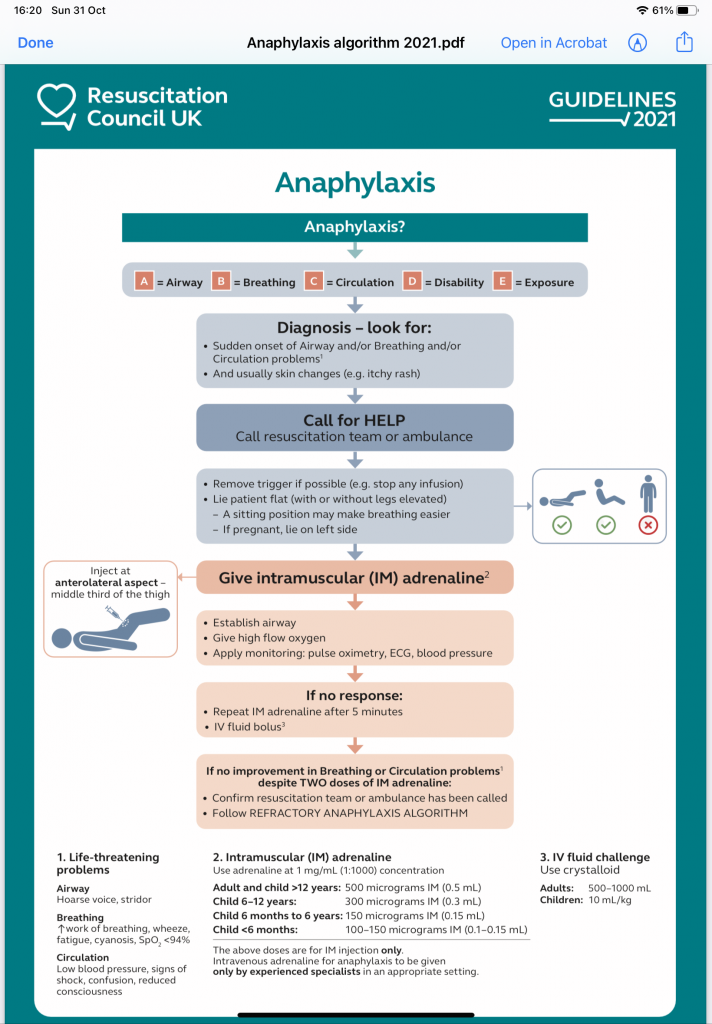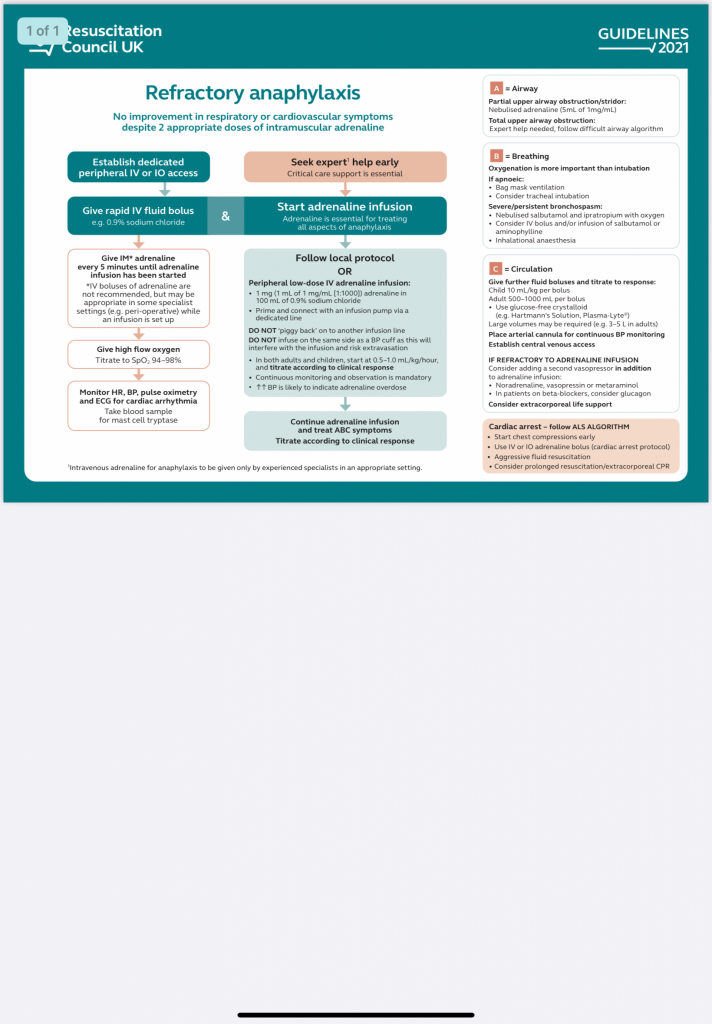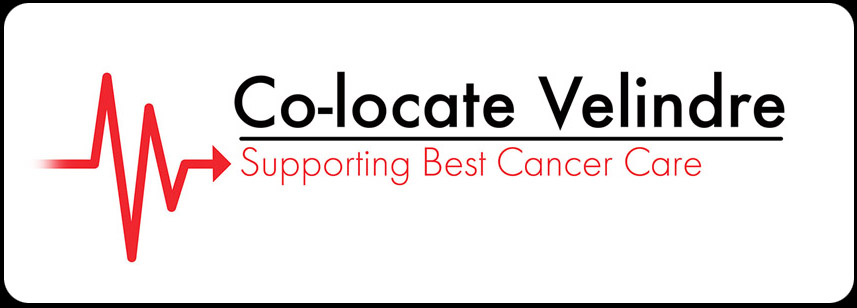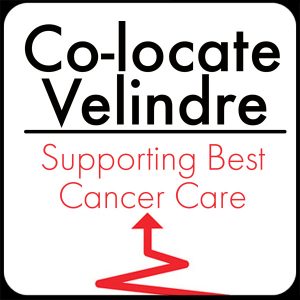What you should know if you are to be treated at the current or future Velindre Cancer Centre.
Anaphylaxis is a severe, potentially life-threatening allergic reaction.
It can occur within seconds or minutes of exposure to something you’re allergic to- such as peanuts, bee stings…or chemotherapy given in Cancer Centres like Velindre.
The Resuscitation Council UK issues and updates guidelines for the treatment of anaphylaxis. Here are the most recent guidelines, from 2021.

The guidelines look complex. HOWEVER they are CRYSTAL CLEAR to doctors, nurses, paramedics, first responders and parents and patients who carry the EpiPen automatic adrenaline injection.
Refractory Anaphylaxis
This year there’s an additional algorithm which deals with REFRACTORY ANAPHYLAXIS . . . .When the patient doesn’t respond to the initial resuscitation.
ALL medical professionals should be familiar with both of these protocols.
It is especially important that any clinician who might administer medication, especially through a drip, is familiar with these guidelines and is in a position to act upon them in an emergency.

This new addition to the pathway emphasises the truly lifesaving role of adrenaline in the management of severe Anaphylaxis.
The 2015 Resuscitation Council guidelines advocated the use of intravenous adrenaline in Severe Anaphylaxis, but this has been hugely emphasised in the updated 2021 guidelines.
Look Carefully at Column Two
“Seek Expert Help early . . Critical care support is essential “ BUT critical care isn’t available at Velindre, and it won’t be available at the new unit currently planned for the meadows.
“Start Adrenaline infusion . . Adrenaline is essential for treating all aspects of Anaphylaxis” BUT intravenous adrenaline is expressly forbidden Velindre Cancer Centre.
Yes, you did read that correctly
Intravenous adrenaline is expressly forbidden in Velindre Cancer Centre. Despite the clear guidance of the internationally recognised Resuscitation Council UK, Velindre has its own guidelines!
And within the Velindre guidelines, printed in red, is the following:
IV Adrenaline SHOULD NOT be given at Velindre Cancer Centre.
IV adrenaline should only be given by Anaesthetists in monitored situations in Emergency Units and Critical Care.
That is exactly how it appears in the current Velindre guidelines. In red, with the words SHOULD NOT underlined, in red, in block capital letters.
And these are Velindre’s updated guidelines, updated in March 2020 and still in use.
Are anaphylaxis deaths serious untoward incidents?
We know that death from anaphylaxis has occurred at Velindre. The Velindre Leadership does not think such deaths warrant reporting to Welsh Government as Serious Untoward Incidents. In response to a Freedom of Information request about one case, they told us:
‘The case was not reported as a serious incident as it did not meet the threshold for reporting’. (FoI CORP 2020-75)
The Trust also insisted that the Helicopter doctor service (EMRTS) had attended on this occasion, but later admitted that this was not the case.
So there you have it.
It would seem that Velindre NHS Trust have diluted the care they can provide simply to fit in with the limited resources they have on site.
Rather than improve training and resources, they have removed a critical and lifesaving intervention to accommodate their deficiencies.
This incomplete resuscitation protocol is currently in use, and there is no evidence to suggest things will be any different in the New Cancer Centre planned to be built on the Northern Meadows.
How can we make such a bold claim?
Quite simple- the current Cancer Centre has no critical care support- and none is planned for the new build.
If you have an anaphylactic reaction at Velindre, you must rely on a 999 ambulance being available convey you to UHW in a timely manner to give you any chance of survival.
Despite Velindre repeatedly claiming doctors from EMRTS are available, a Freedom of Information request revealed that they can’t guarantee attendance, and have indeed only attended twice in a five year period.
The same limited model of care will transfer to the new £700m Cancer Centre currently being planned on the meadows.
Is this really world leading, cutting edge cancer care?
Is this really worth a £700m commitment over the next 30 years?
Newer cancer treatments are much more effective, but also carry an increased risk of anaphylaxis.
You deserve better!!

